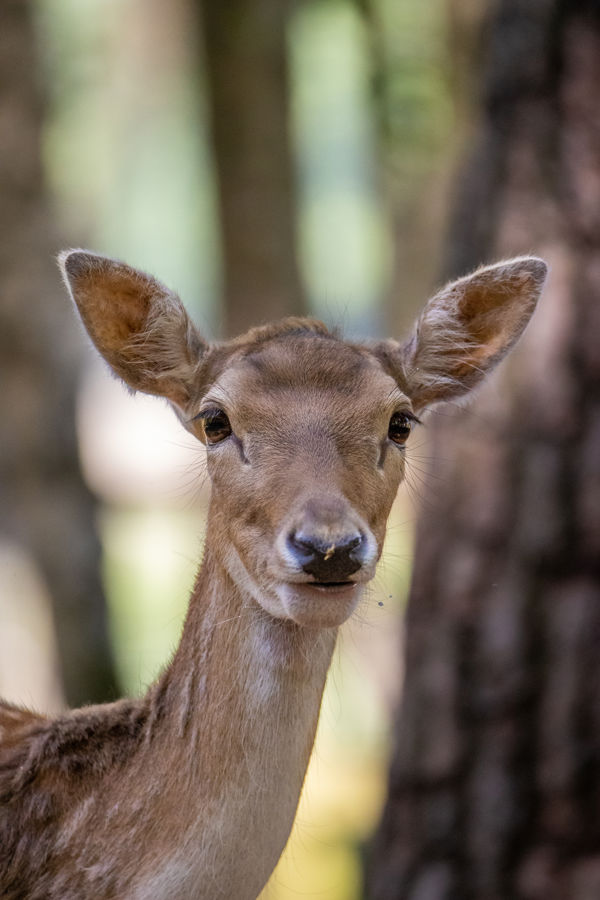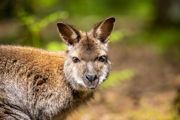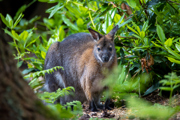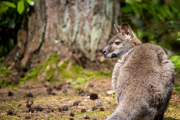Red-Necked Wallaby
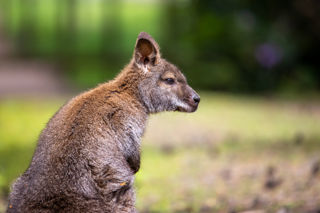
General information
Red-necked Wallabies are mainly grey, with a white chest and belly. But as their name suggests they do have a red tint to the back of their neck and shoulders. A group of wallabies is called a “mob” but this species is mainly solitary, only coming together when food and water sources are in abundance. When a mob comes together, males will become aggressive and box between themselves. Resting throughout the day, red-necked wallabies will be mostly active during the night where they will forage for grasses, shoots, bark and leaves to eat.
Breeding season takes place between December and May, followed by a 30-day gestation period. The female will have one joey at this time, which will immediately crawl up her body to her pouch where it lives and nurses for up to around 7 months. At around 7 months the joey will be big enough to venture out of the mothers pouch but will continue to feed from her for another 5 months. At around 10 to 12 months old the joey will be fully weaned, a female will stay in mum's range potentially her entire life but a male will leave at 2 years old.
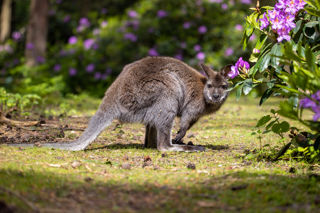
Latin name - Macropus rufogriseus
Class - Mammalia
Order - Diprotodontia
Family - Macropodidea
IUCN Status - Least concern
Habitat - Broad range of habitats including eucalyptus forests, tall coastal heathlands and pasturelands
Distribution - Endemic to Australia - through the south eastern parts and Tasmania
Average Lifespan
15 years
Threats
Predators, hunted as a pest or harvested for meat.
Fun Fact
Wallaby mothers can have a baby developing in the womb, a newborn in the pouch suckling milk and an older joey, out of the pouch, who still feeds from her (until weaning at around 18 months old) – all at once!
Our Residents
Our bachelor mob consists of 5 adult wallabies; Noonamah, Nagambie, Naracoopa, Orroroo and Narellan,who all joined us from Woburn Safari park.

Sign up to our newsletter
Join our mailing list in order to keep up to date with park news and special offers.

